Required Documents
Please prepare the following required documents in PDF format.
- A Copy of the Degree Certificate (English Translated)
- A Copy of the Academic Transcript (English Translated)
- A Copy of Passport / Identification card
- A Photo (jpeg format)
- An English Proficiency Test Result
If you select a face-to-face learning course, you are required to upload a health certificate and a certificate of COVID-19 vaccine.
-
Qualification Requirements
1. GCE A-Levels2. An English proficiency examination score according to the entrance requirement of the Faculty of Graduate Studies, Mahidol University. English proficiency score must be 2-year validity.- IELTS: 3.0- TOEFL-iBT: 32- MU GRAD Plus(MU GRAD Test + Speaking): 40- MU ELT: 84- TOEIC: 400- Berlitz Placement online test: Level 5.00 (Upper intermediate)***This shall be under the discretion of the course coordinator.
Semester 1/2026
please click / to expand or collapse the detail of courses.-
SIHS 501 Principles of Educational Research2 credits
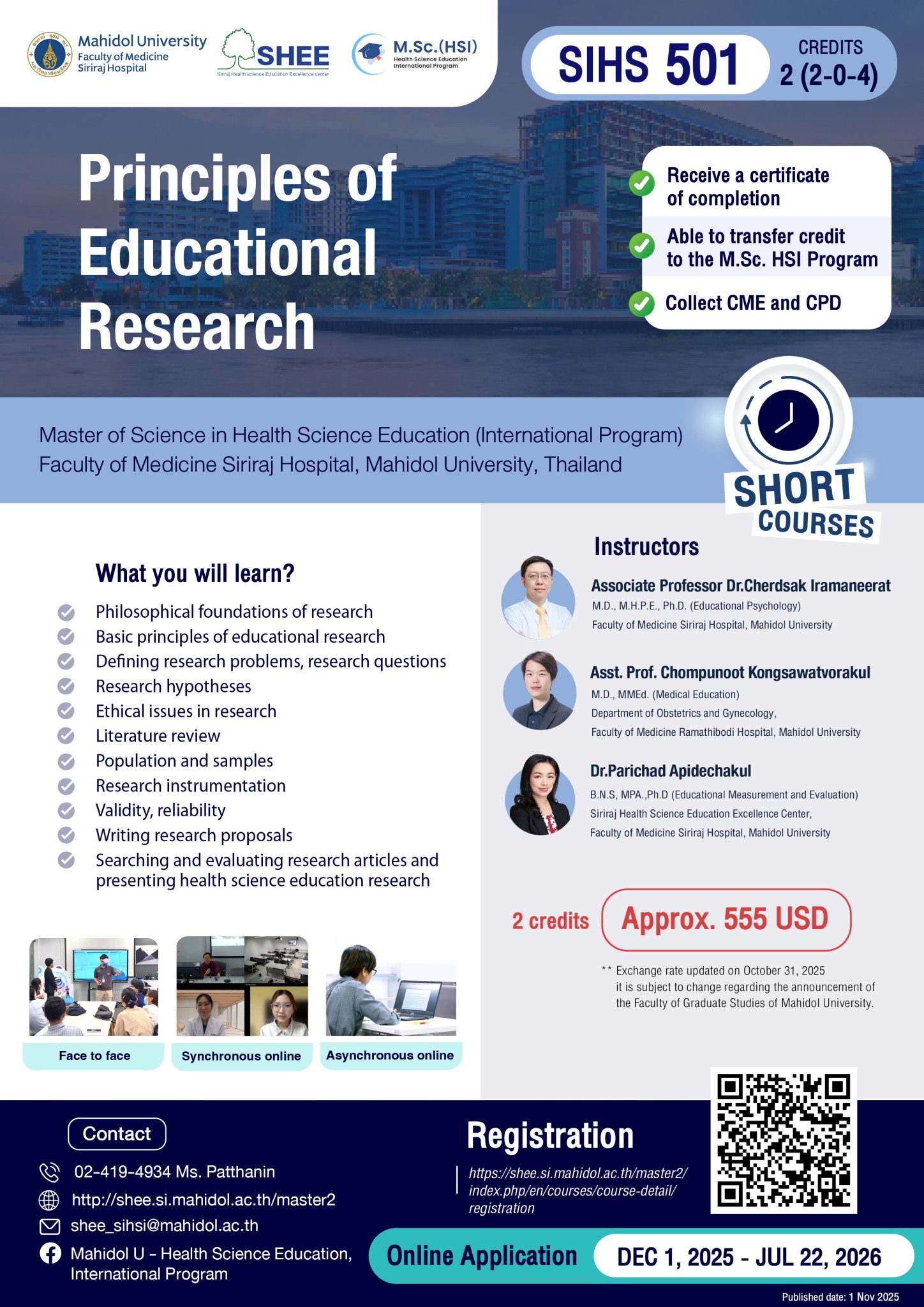
-
SIHS 502 Psychology of Learning in Health Science Education2 credits
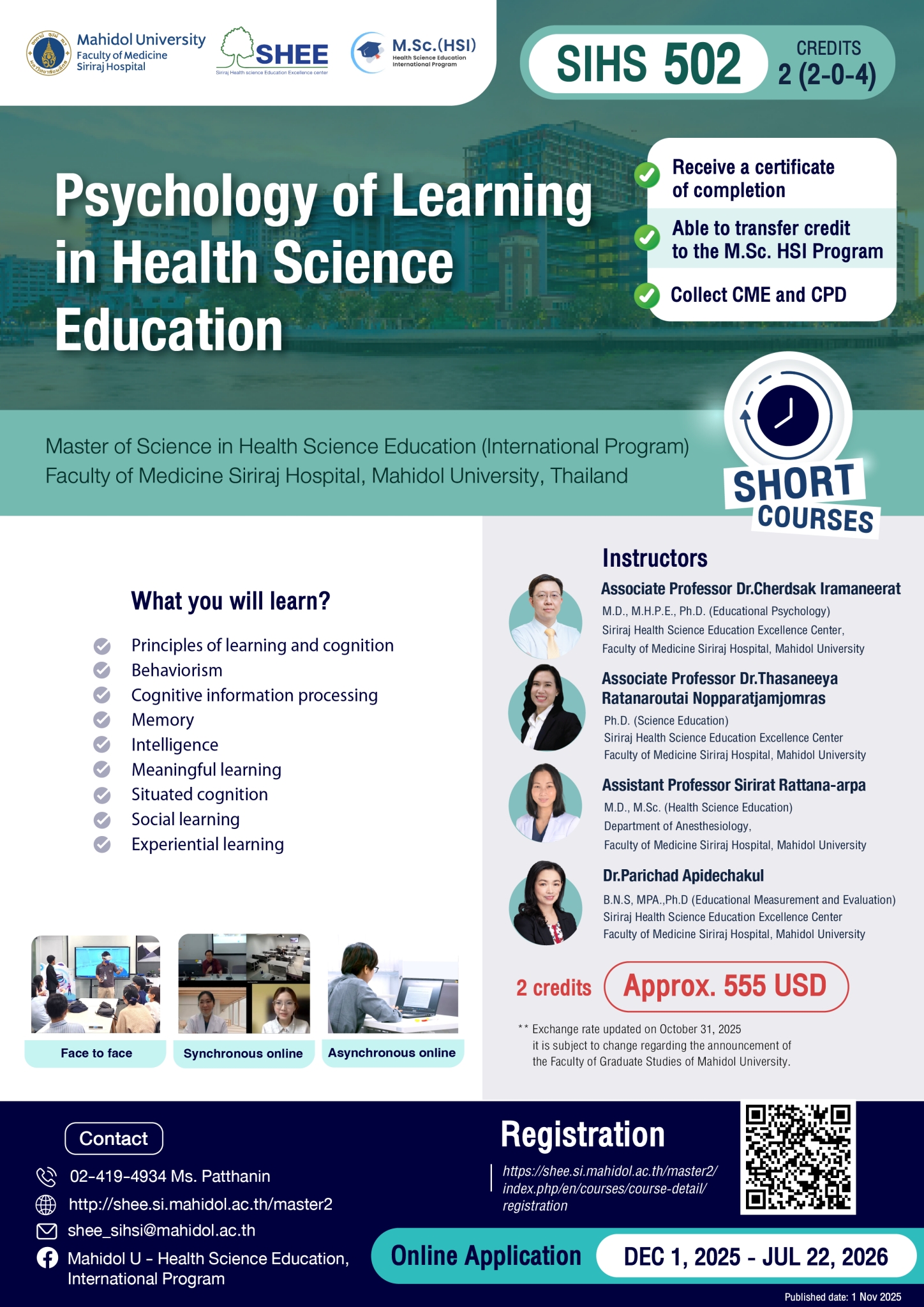
-
SIHS 503 Assessment and Evaluation of Learning in Health Science Programs2 credits
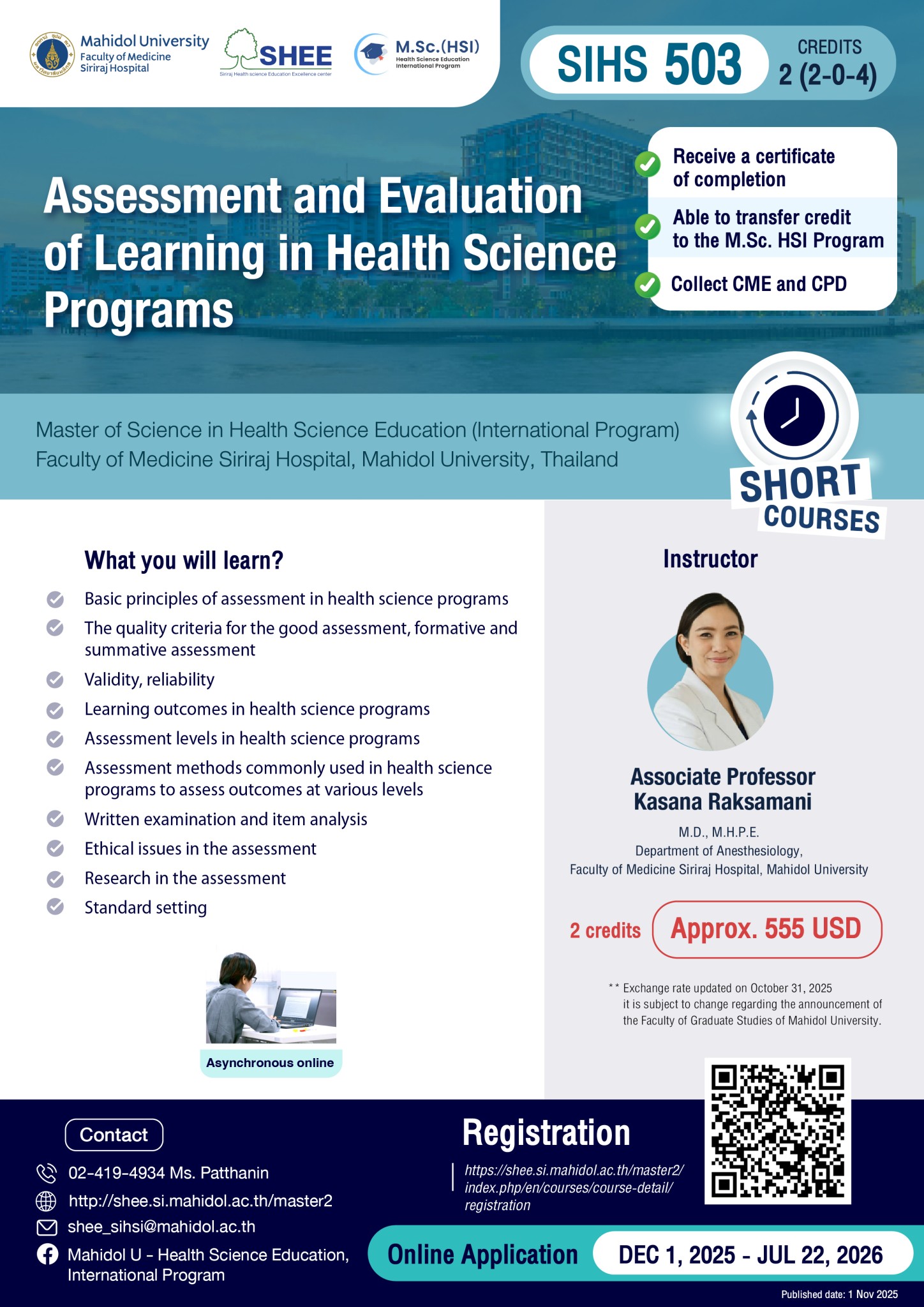
-
SIHS 509 Faculty Development and Leadership in Health Science Education2 credits
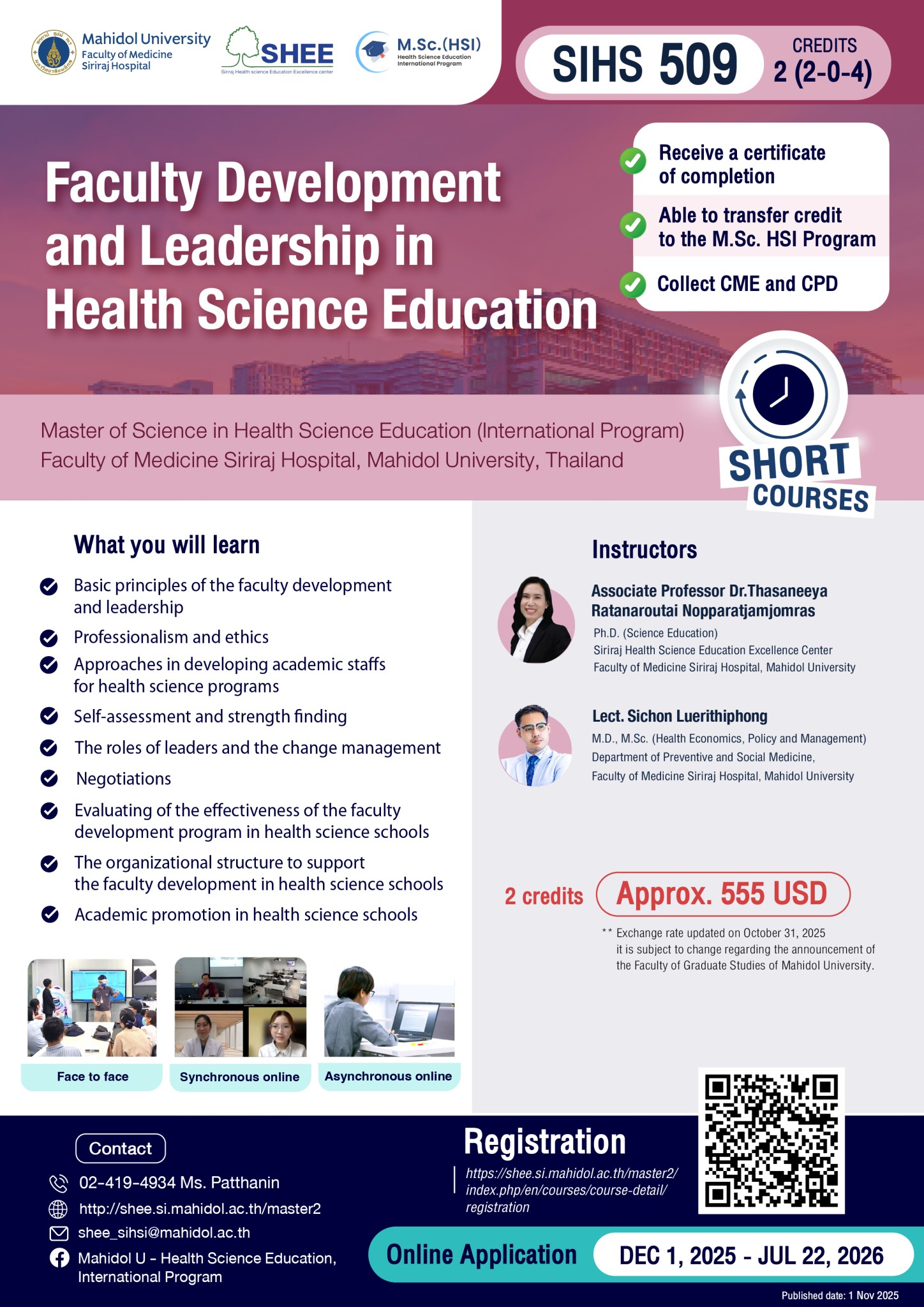
-
SIHS 513 Qualitative Research in Health Science Education2 credits
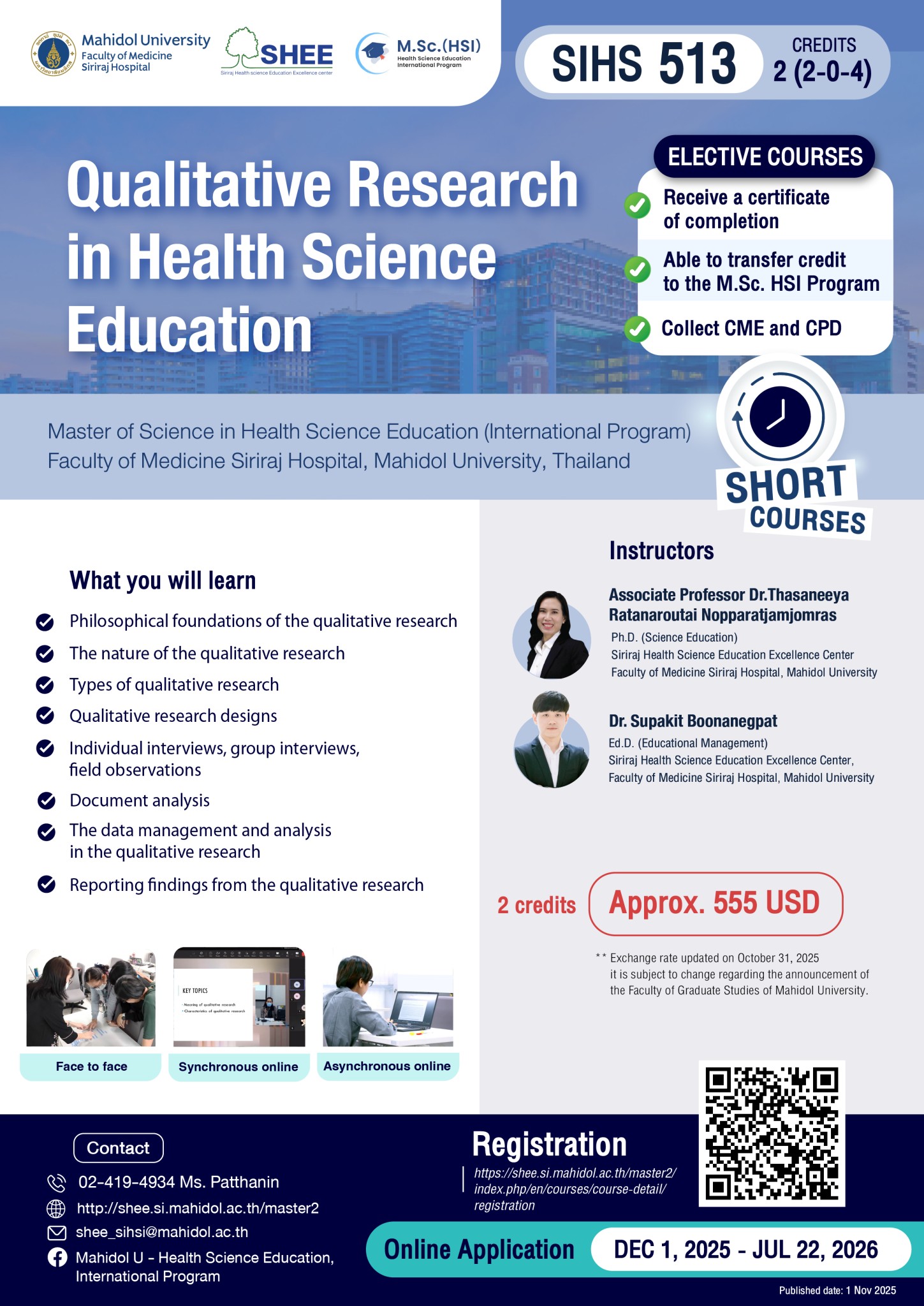
-
SIHS 516 Digital Education1 credit
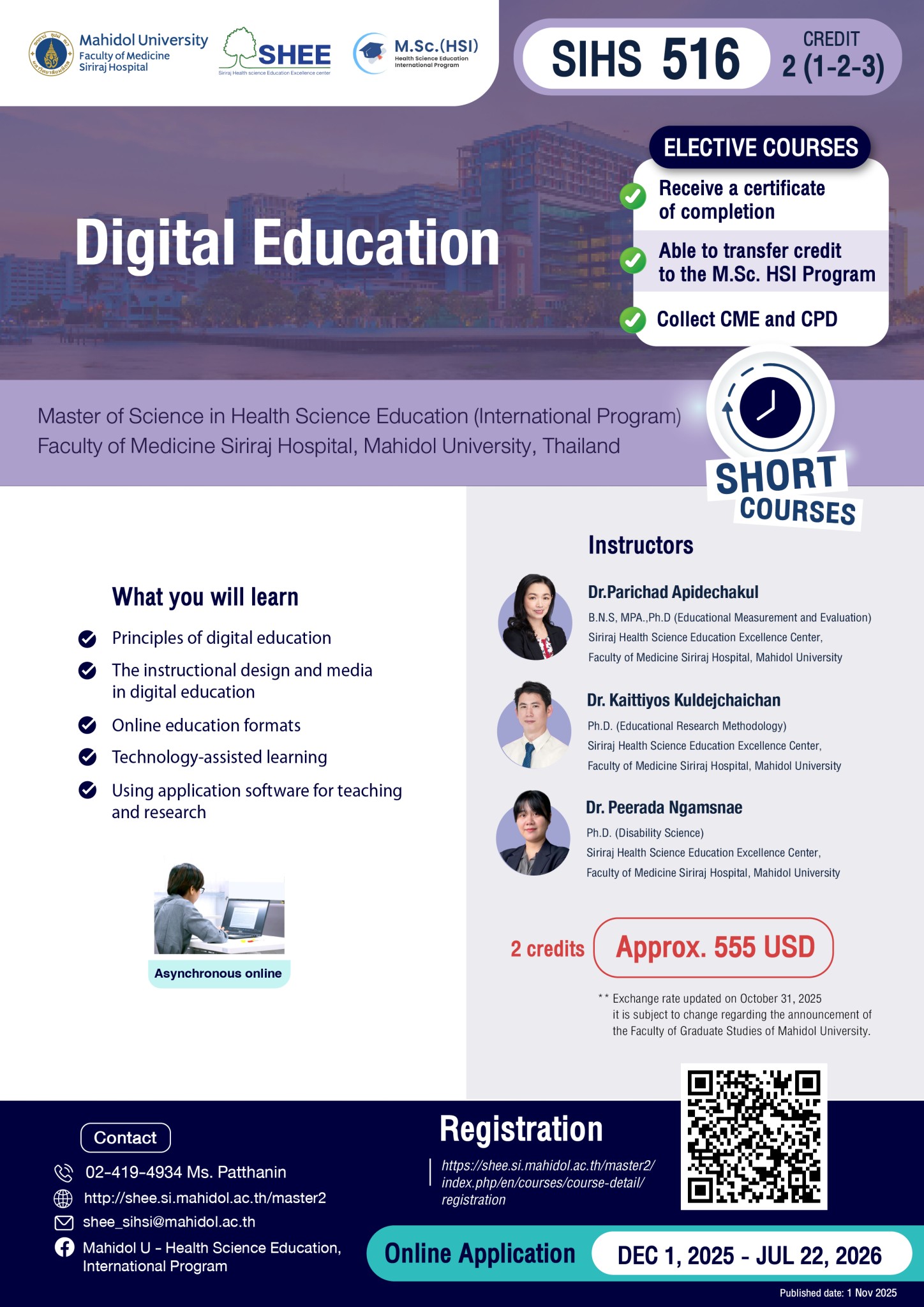
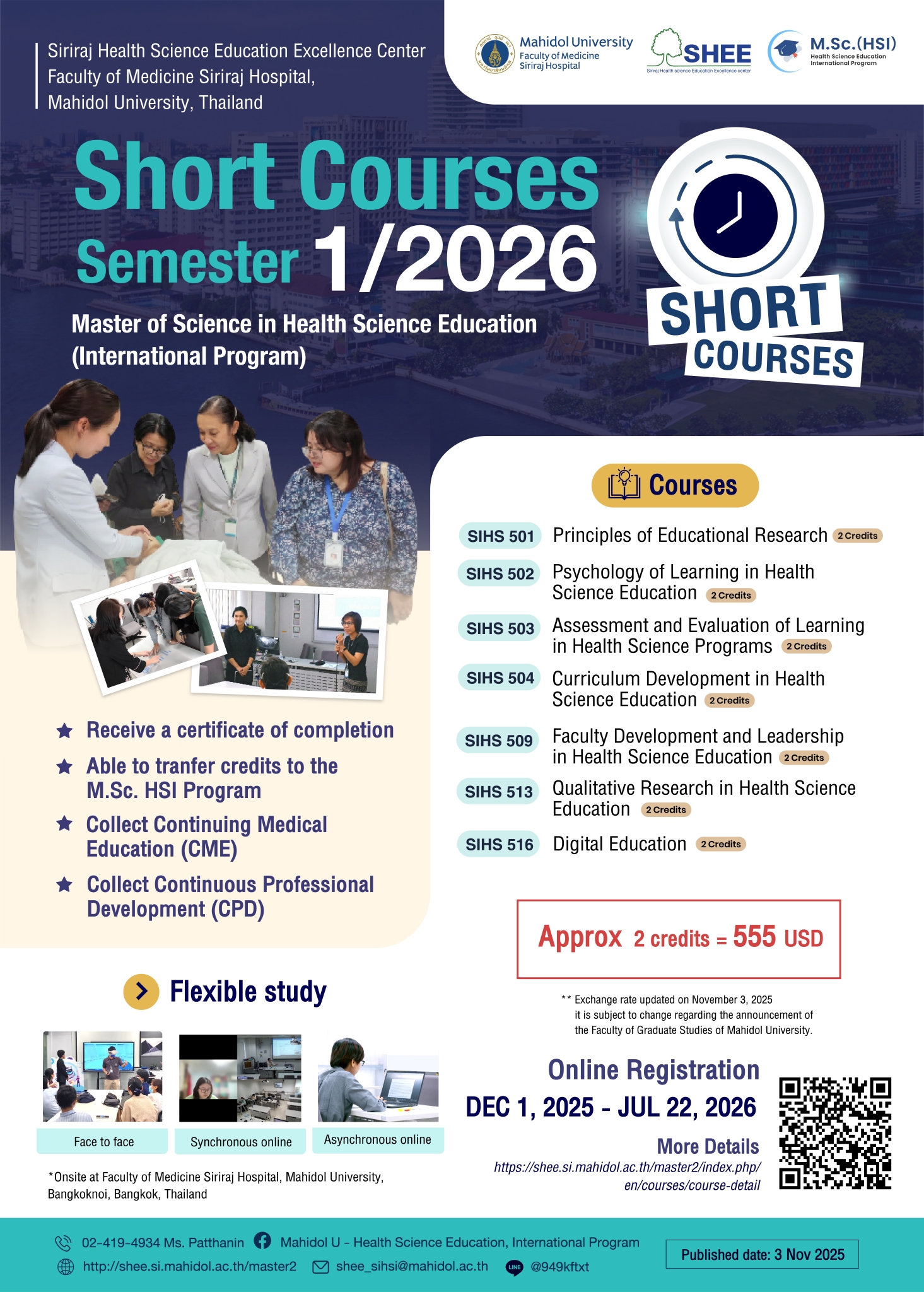
For those who are unable to access the Google Form, please contact our program directly by sending an email to: shee.sihsi@gmail.com


